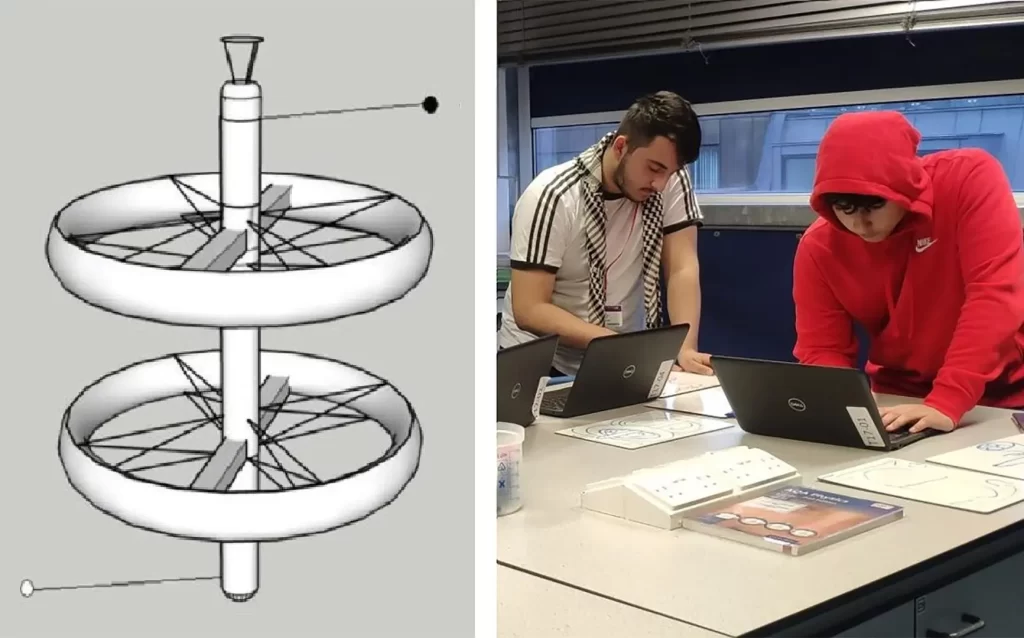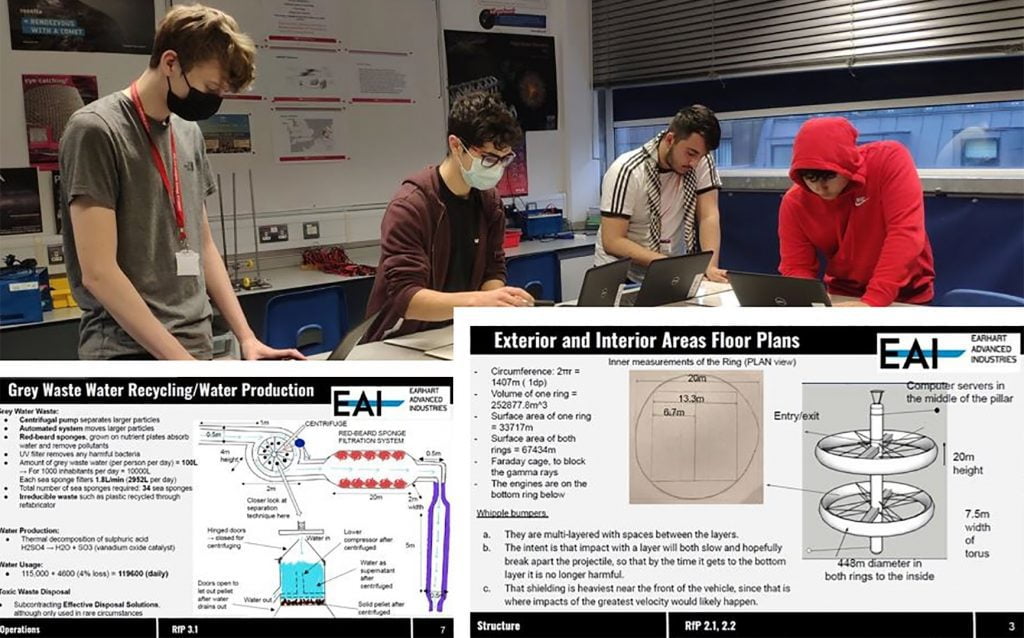


A Level Physics students reach for the stars in UK Space Design Competition
A Level Physics students from City and Islington College are over the moon after reaching the national finals of the UK Space Design Competition.

Ten students from the college’s Sixth Form Centre were part of a team including other schools and colleges that won the London and South East regional heat of the competition.
Each team was placed in a fictional space technology company created by the competition’s organisers from the Space Science and Engineering Foundation.
The CANDI students were in a company called Earhart Advanced Industries and tasked with designing a spaceship to take 1,000 people to and from Mars.
The team worked together online because of the COVID pandemic to develop their design and then presented it to a panel of academic and industry experts.
The challenge aims to simulate real-life industry working and tests students’ knowledge and expertise in science, engineering, design and business.
‘My time at CANDI has exceeded my expectations. I feel supported and valued. The education I am getting here is to a standard which I wouldn’t have imagined. It’s much better than I thought it would be.’ – Rayhan Miah, A Level Physics student

Physics student Rayhan Miah, 17, said: “We all worked very hard. It was a highly intensive situation, but I feel with the amount of effort and teamwork we put in, particularly towards the end, our win was definitely well-deserved.
“I was part of the structural team, which involved creating the main design of the spaceship, making sure I knew the dimensions, how to build it and that it maintained artificial gravity. It was quite a hectic and sometimes stressful experience with a lot of on-the-spot thinking, but I know now that if I have that sort of task in the future, I have the skills and ability to dedicate myself to something this challenging with good results too. I was proud of what we accomplished.”
Rayhan, who hopes to work in aerospace engineering or astrophysics, added: “My time at CANDI has exceeded my expectations. I feel supported and valued. The education I am getting here is to a standard which I wouldn’t have imagined. It’s much better than I thought it would be.
“Doing this competition has made me more motivated to go into this area as a career. These types of opportunities open your eyes and give you the opportunity to see where your skills can apply in the future.”
‘The unique opportunities like this that CANDI provides set it apart from other colleges. It’s the reason I applied to come here. You won’t get this kind of experience anywhere else.’ – Ansa Sajid, A Level Physics student
Another student, Ansa Sajid, 17, said: “I’m very happy. I didn’t think we would win, but we did and we’re very proud of ourselves. I love creating solutions to problems, and working with other people
who share similar interests was really good fun and rewarding. It was one of the best things I‘ve done.
“The competition was completely online so communication was difficult, but everyone worked together and came up with lots of ideas and built on them. It was hard to make something that can power an entire ship that doesn’t cost a huge amount of money. We also had to consider the human side of being on a ship for that long. As we got into it, we realised the need to keep them happy and healthy was just as important as the science.”
Ansa, who hopes to study mechanical engineering at university, added: “I went to an all-girls school with a heavy focus on STEM and feminism that really encouraged us to get into these careers. Doing the competition has made me even more passionate about what I want to do.
“The unique opportunities like this that CANDI provides set it apart from other colleges. It’s the reason I applied to come here. You won’t get this kind of experience anywhere else.”
The national finals are expected to take place at Imperial College London in March, with the winners heading to the world finals at NASA’s Kennedy Space Center in Florida the summer.
Physics teacher Sajib Al-Rashid said: “The UK Space Design Competition is a fantastic opportunity for students to work collaboratively and use their creativity to come up with solutions.
“The multi-disciplinary nature of the competition means you need people with a variety of interests, from the technical aspects of designing a space settlement to the human aspect of meeting the needs of people.
“Our students worked tirelessly from the start of the day until the final presentations and announcement of the winners. I am thrilled that they have won this round of the competition and will be going to the national finals early next year.”
Apply now for A Level courses.
King’s Cross
London
WC1X 8RA
United Kingdom Contact Us


